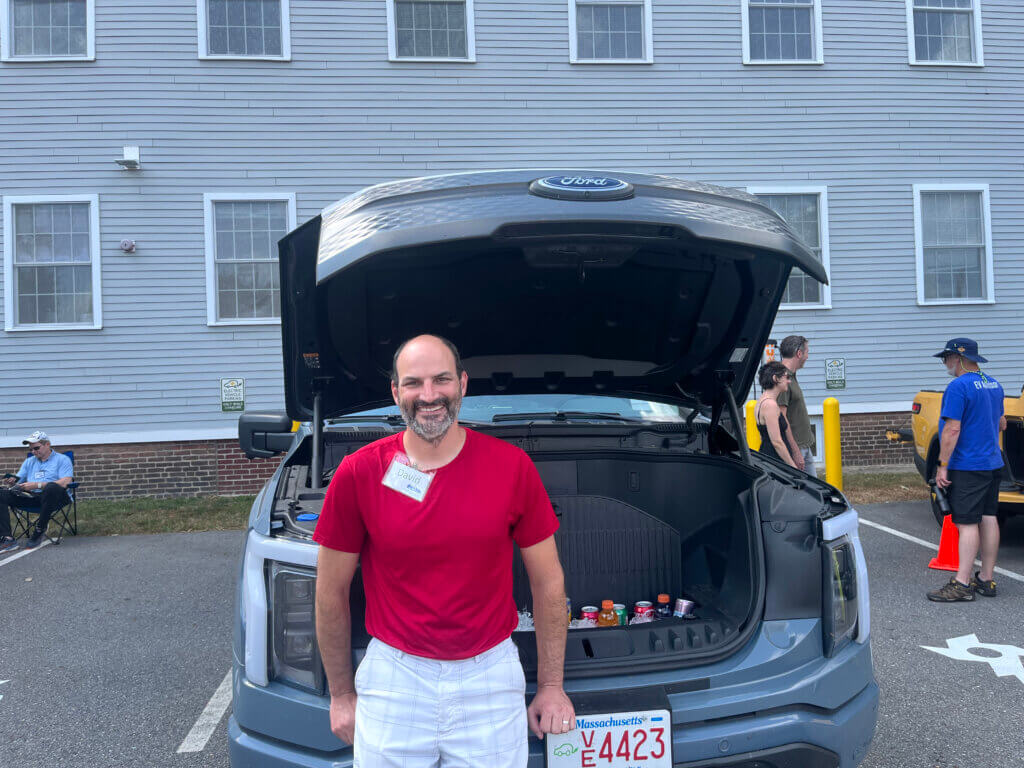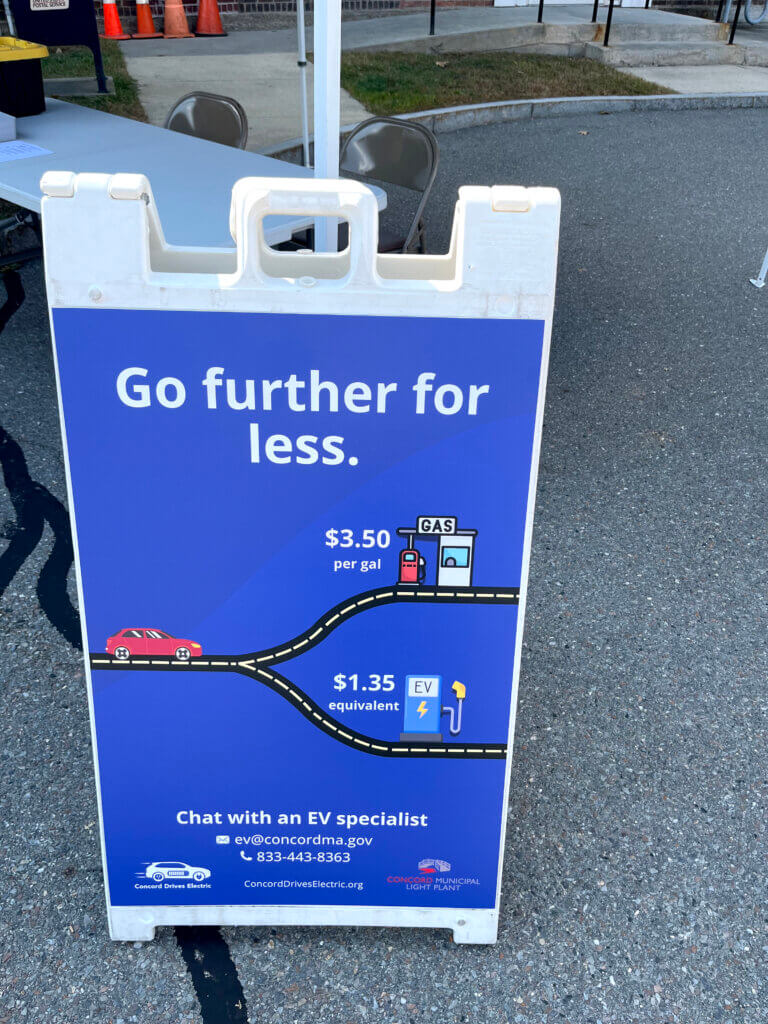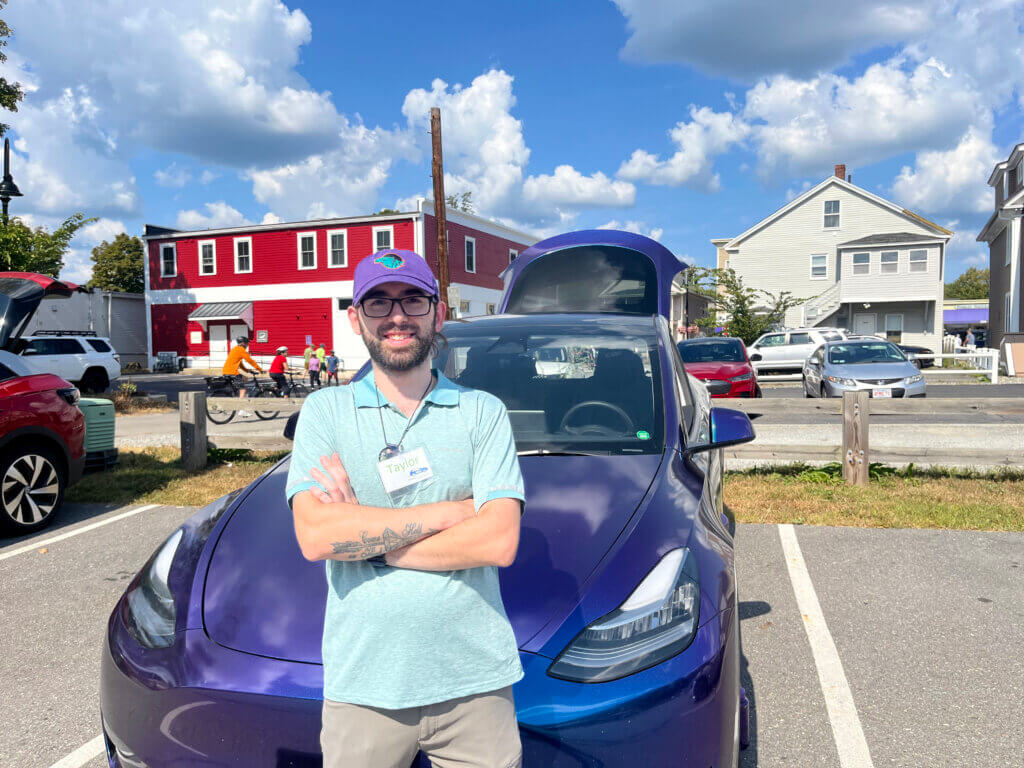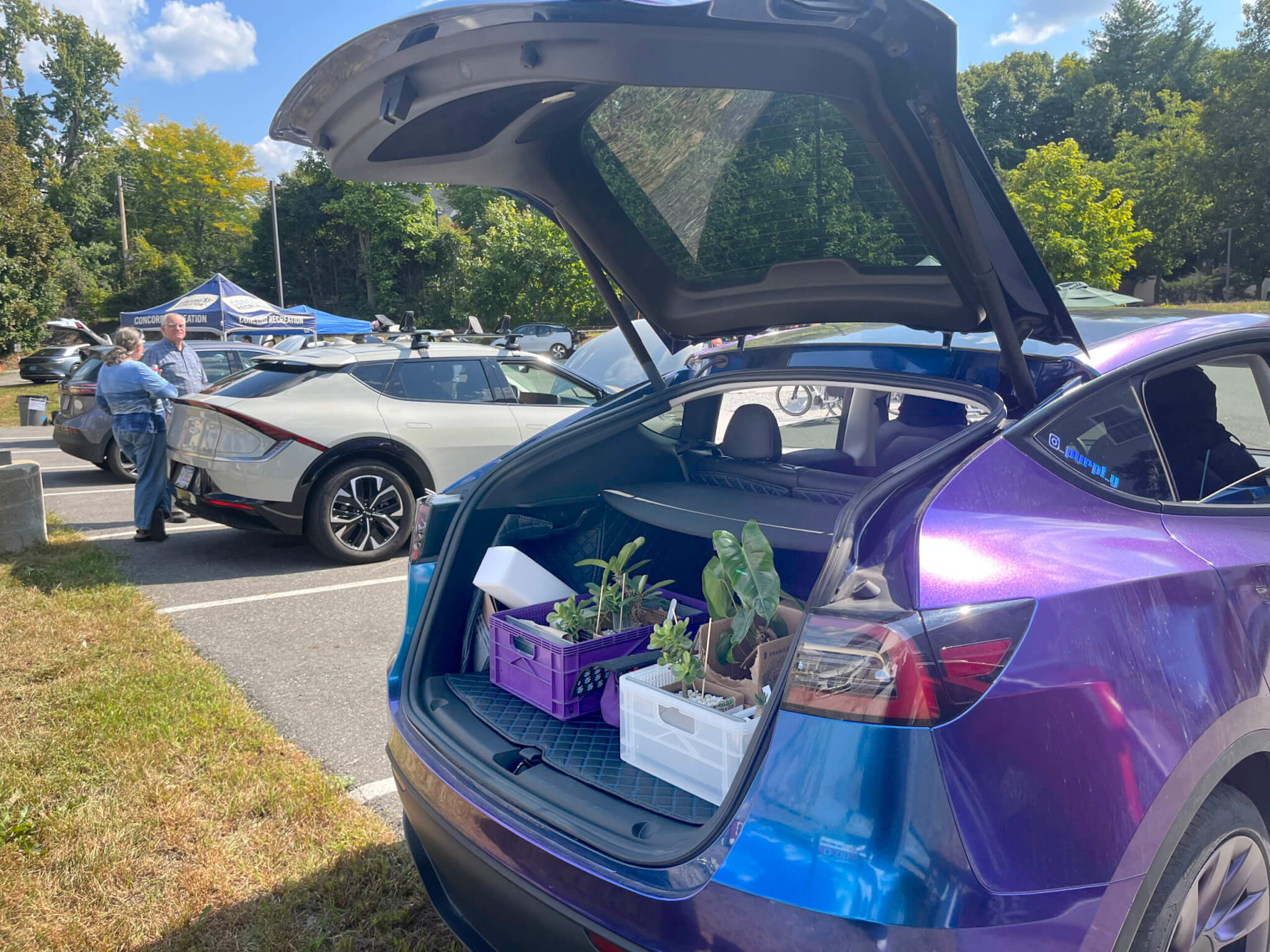By Gretta Goorno — Correspondent
For David Goldstein, the benefits of driving an electric version of the Ford F150 go beyond economy and ecology.
He’s transformed the massive space under the hood – where a gas-powered truck would have its engine – into a massive cooler. That’s a real plus when tailgating at sporting events.
Goldstein was among the EV enthusiasts who gathered last weekend for an electric vehicle showcase co-sponsored by Energy New England and the Concord Municipal Light Plant.

“It’s pretty much like the regular F150 but electric,” Goldstein says. “It feels and drives like any big pickup truck would. It is very quiet, very smooth, and very fast.”
In the bed of the car, there are multiple outlets. Goldstein plugged an entire gaming console into one, providing entertainment for his son. Should a friend need a charge, the truck is equipped with a 220-volt battery. The truck even has a built-in generator that can power his Weston home for five days if lines are down.
Toward a greener future
The event highlighted not only EVs but also local and statewide progress toward a reduced carbon footprint.
“Concord is very forward-thinking, especially with their sustainability initiatives,” says Katelyn Leahy Barb, manager of transportation electrification for Energy New England (ENE), which works with municipal light plants to help customers go green.

For example, town-owned Concord Municipal Light Plant achieved 100 percent carbon-free electricity in 2023. That means that the power in homes, offices, and local stores comes from renewable sources such as wind, hydroelectric, solar, and nuclear facilities.
Eric Simms, Concord’s head of sustainability, explains that Concord plans to reduce greenhouse gas emissions by 80 percent by 2050 through transitioning residents to heating pumps, induction stoves, electric water heaters, and electric or non-motorized transportation vehicles.
“We have a history of being pretty progressive for sustainability in town,” he says. “We hope that events like this keep pushing us forward and keep us at the forefront.”
On the road again
Statewide, 2.3 percent of vehicles are electric. In Concord, that number is 9.2 percent; only Lexington’s adoption rate is higher.
Another electric owner, Waltham resident Taylor Aguiai, who traded in his Prius Prime for a Tesla Y 2022, says his long-range EV is “almost its own insurance policy,” as it has built-in cameras that record the surroundings and sensors that would alert him if someone hit his car.

Cost-benefit analysis
Speaking of impact, there is the sticker shock to consider. EVs are anything but cheap to buy, but governmental incentives and long-term savings on powering the vehicles help to ameliorate the purchase costs.
An average electrical vehicle can travel from 100-300 miles on one charge, and most have built-in GPS systems or compatible apps that show nearby charging stations. If your car dies, AAA — or a friend like Goldstein— can provide enough juice to get you to your destination or the nearest charging station.
The event also featured electric bicycles. Organizer Laura Davis of the non-profit Mothers Out Front says her own e-bike story began with an asthma diagnosis. She says three classes of e-bikes offer riders varying levels of assistance, “making biking approachable for a lot more people,” such as seniors, parents, commuters, and delivery workers.






